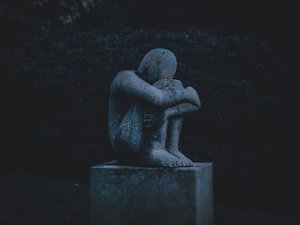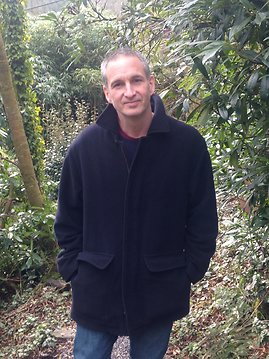Bereavement and Loss.
The loss of a loved one is one of the most difficult things to deal with. In many cultures there is a tendency to hide grief, sometimes to protect ourselves, sometimes because we want to protect others. Talking to a counsellor can be comforting, as well as a release.
In her book On Death and Dying (1969), Elisabeth Kübler-Ross suggested that these are the five stages of grieving that we all go through.
Denial and Isolation.
The emotions we experience when we lose someone close to us, such as shock, anxiety and numbness, are intense and very uncomfortable. It is natural that we want to escape from them rather than face them. We might avoid talking about what has happened, burying the feelings as if nothing has happened, or cut ourselves off from the world to avoid being with or talking to other people. This is a defence mechanism and it is natural in the early stages of grieving. We may avoid emotions by focusing on work, throwing ourselves into other activities or by using alcohol or drugs to mask what we are feeling. Bereavement counselling can be an important part of helping you to talk about what has happened and to deal with the rollercoaster of emotions that you will be experiencing.
Anger.
Being angry is also a normal reaction, because we are filled with strong emotions and are experiencing a situation that is new to us. We can’t control it and we don’t fully understand why it as happened. We feel the need to blame someone or something. This anger may be directed towards the people closest to us, or medical professionals, or anyone who happens to be around at the time. Anger is often a reaction to confusion and a feeling of having lost control. We feel vulnerable and confused. Sometimes we will be angry at ourselves and this could be for any number of reasons, both rational and irrational. Bereavement counselling can help you explore this anger and enable you to deal with it in a healthier way.
Bargaining (‘What If’ or ‘If only’).
If we have lost a relationship or our job we might try to persuade our friend, partner or employer that we will make changes in an attempt to reverse what has already happened. In the event of a death, we are likely to have thoughts about what we could have done differently that might have prevented it from happening. Some examples of this might be “If only I had visited them more often,” “If only I had made them see a doctor earlier,” or “what if I had been kinder to them while they were still here?” This stage can bring about feelings of guilt. We might even try to bargain with a religious god or higher power or spirit, in the vain hope that our prayers will be answered and the person restored to us. Counselling can help you find peace amongst this confusion and guilt.
Depression.
Sadness, emptiness, loneliness, anger and feeling out of control can lead towards depression after a loss of someone or something that you care deeply about. It can come and go in waves and is perhaps the most painful part of the grieving process. How long the depression lasts will vary and for some, it may last months or even years. Depression can make us feel that we want to be on our own. It can make us feel worthless. At times like these it is important to try to do the opposite and connect with friends and not to become isolated. Once the depression has passed, we can begin to find acceptance of our loss.
Acceptance.
This is the final stage of the grieving process. The other four parts lead towards it, but they can happen at any time and in any order, until we start to make sense of what has happened and are ready to come to terms with it. Not everyone gets to this place of acceptance over a loss. In some circumstances accepting what has happened may not come. Of course, the sadness and pain may never completely go away and there will of course be times of reflection, but the counselling process can help you to reach this place of acceptance and to be able to return to living a normal life.
What kinds of loss can counselling help with?
When we talk about loss, we can mean a number of different things, for example loss of a job, a career, our reputation, self-esteem, contact with children, loss of money, a relationship break up, loss of mobility, loss of our youth or our good looks. The list could be extended.
Whatever it is that we have lost, we will go through the same five processes of grieving. These are times when we feel vulnerable and talking with a counsellor can help. It will halt the harmful process of avoiding our emotions and minimising our feelings. If we do not talk about these losses it can lead to other harmful behaviours as an attempt to block and deny our emotions. And that can lead to other troubles such as damaged relationships, compulsive behaviour, overworking, misuse of alcohol or drugs or other addictive behaviour.
How can counselling help?
Bereavement counselling will help you to work through a loss and to enable you to settle any confusion, anger, denial and depression that you are feeling. It will help you to understand what you are going through and come to terms with your loss. Therapy will help you to find peace and acceptance. The most important part of recovering from a loss is staying connected and talking about how you are.
Please click here to get in touch.




